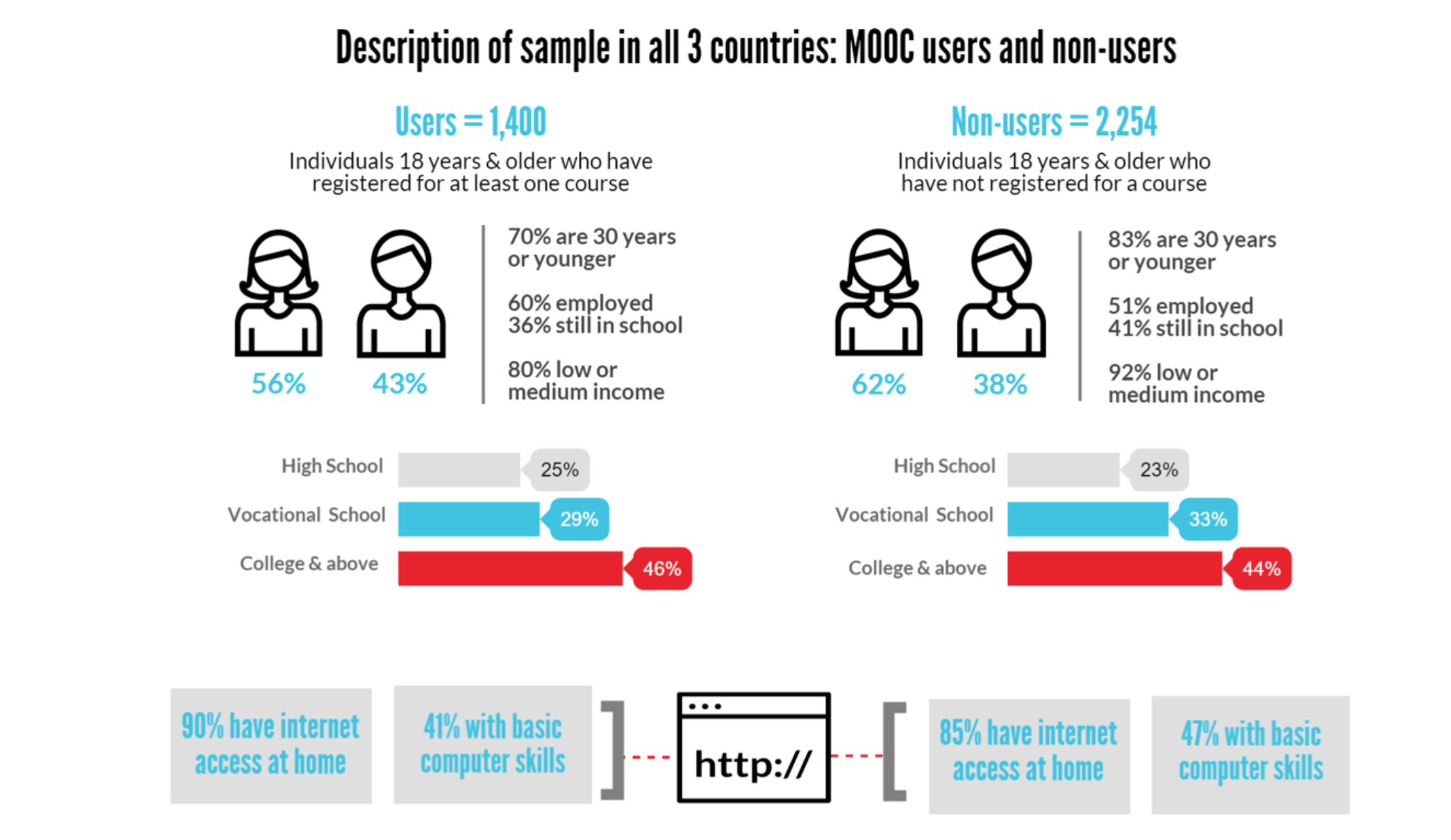AMDI’s goal was to promote the utilization of MOOCs as a resource for workforce development in emerging economies. The project focused on the following objectives:
- Research, awareness raising, and promotion: Advance the understanding of (1) MOOC enrollment, (2) MOOC demographics, (3) general awareness about MOOCs, (4) local business community’s needs regarding MOOCs, and (5) government policies to promote e-learning.
- Enrollment, certification, and completion: Identify key target populations that would benefit from MOOC usage and enrollment; research key factors that would improve MOOC completion rates; promote MOOCs nationally and in local communities in Colombia, the Philippines, and South Africa to better understand the obstacles associated with MOOC participation; and identify demographic attributes of MOOC users.
The overwhelming majority of people who complete MOOCs report career or educational benefits…. Economically and academically disadvantaged populations are taking particular advantage of MOOCs.
“Who’s Benefitting from MOOCs, and Why,” Harvard Business Review, September 22, 2015

